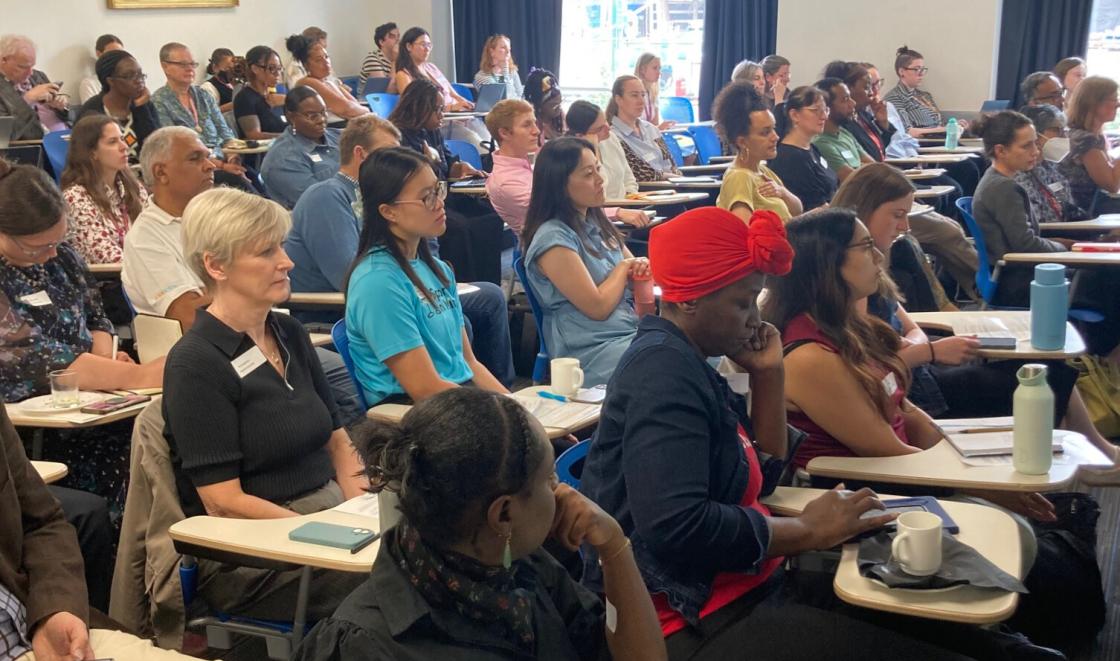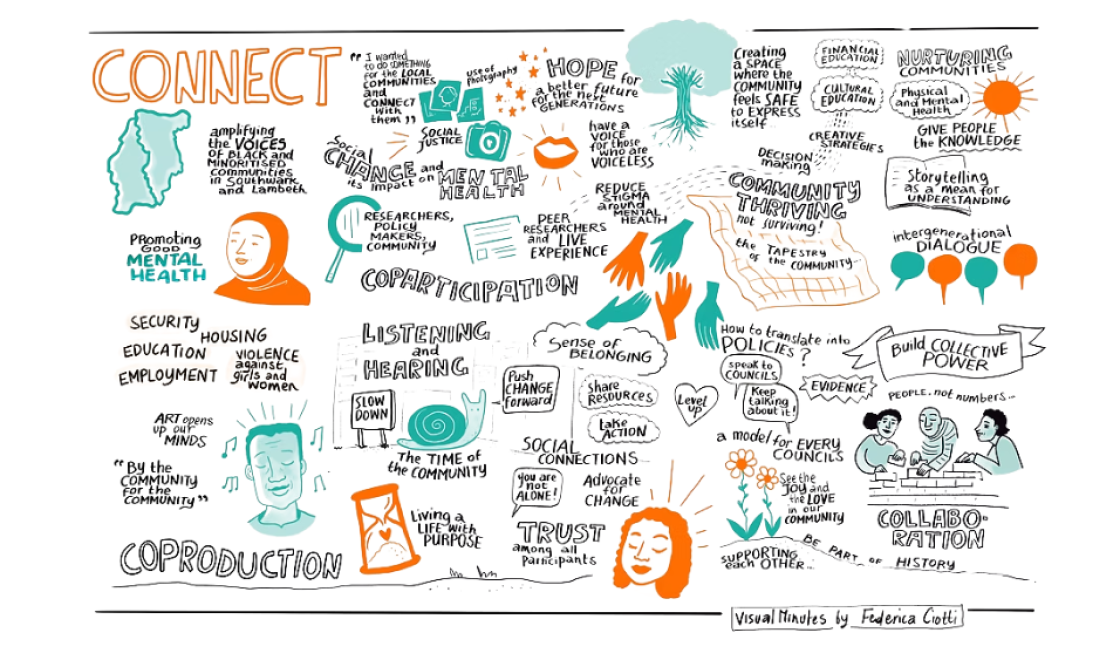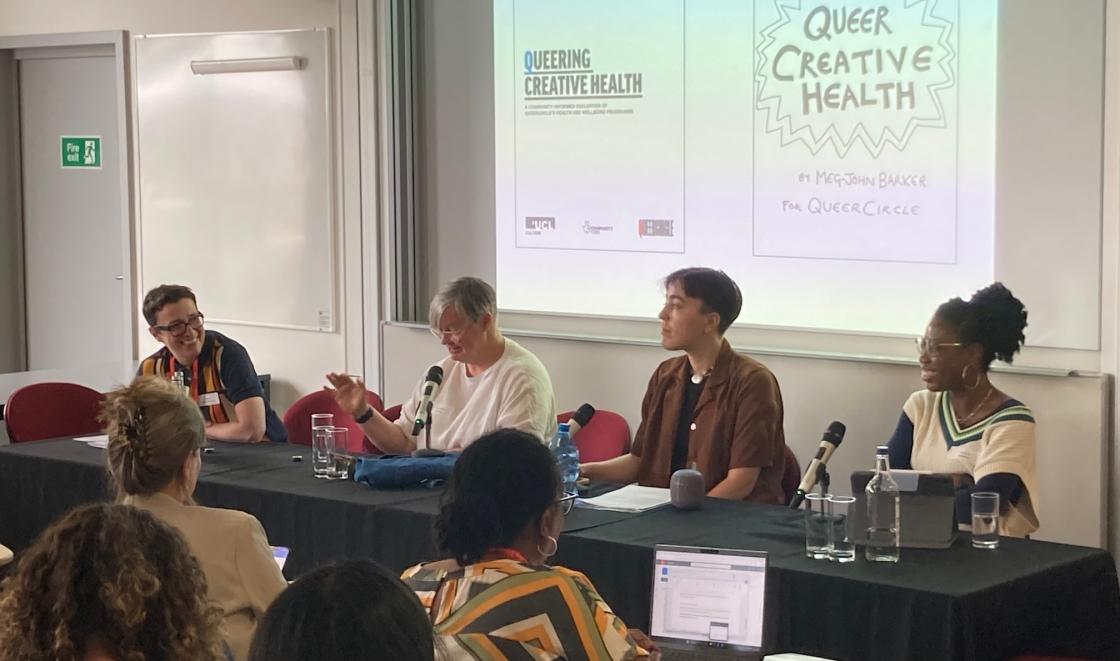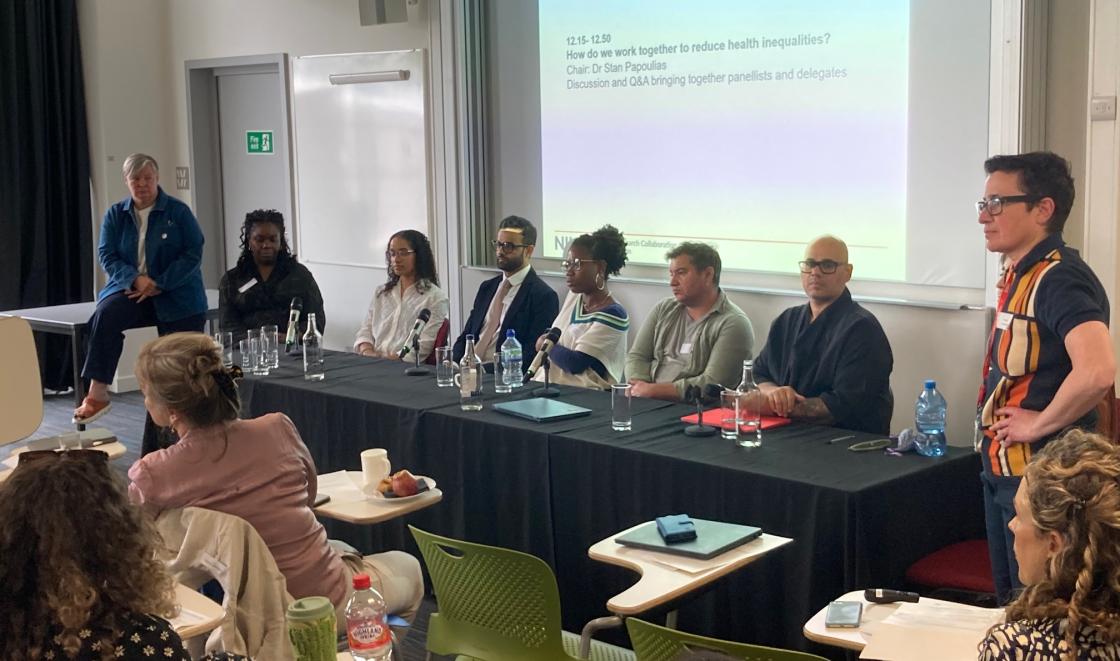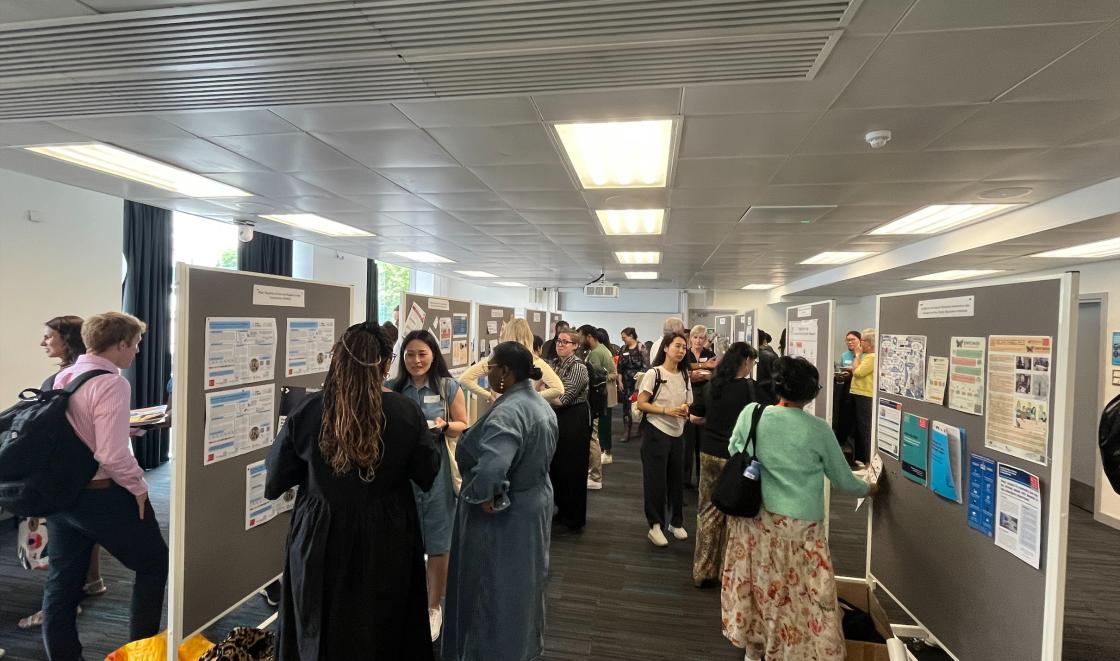Pictured above: Dr Frances Williams, health and research lead, QUEERCIRCLE speaking as part of the panel with Millo Bianchini and Cas Olowoyo, chaired by Dr Stan Papoulias
Millo Bianchini, a musician, facilitator and researcher, and Cas Olowoyo a vocalist, researcher and educator, both spoke of a project called Queering the Voice, which explores how the way we use our voice is shaped through normative assumptions around gender and race. Millo explained how embodied vocalising can be a tool for building resilience and wellbeing for queer people. They said: “We need to facilitate participants to become their own researchers in their own lives, which supports knowledge exchange and mutual understanding, creating meaningful connections between academics and LGBTQ+ people.”
The research team used vocalisation workshops to enable LGBTQ+ people to express their emotions and thoughts on their experiences of harm and discrimination (listen to a sound clip of the vocalisations). Following the workshops, people felt a sense of confidence in their bodies and in their lives and work. They had a greater sense of community and confidence in their queerness.
Addressing the politics of health inequalities
The final panel, chaired by Savi Hensman, ARC South London’s involvement coordinator, was a discussion between Isaac Samuels, co-lead for the Amplifying Voices Programme, part of the Co-production Collective, and Dr Hil Aked, policy manager at Medact, which brings together health workers to fight for health justice.
Hil suggested that ethical research on health inequalities is inherently political and gave the example of the Nags Head Estate project, where residents of the Nags Head housing estate in Bethnal Green (managed by the Peabody housing association) undertook their own investigation into the impact of mould, damp and other housing conditions on their health. The project’s recommendations led to estate improvements. Isaac highlighted the urgent need to move away from inviting people with lived experience into research spaces to perform their trauma and emphasised the need for supportive inclusive environments.
